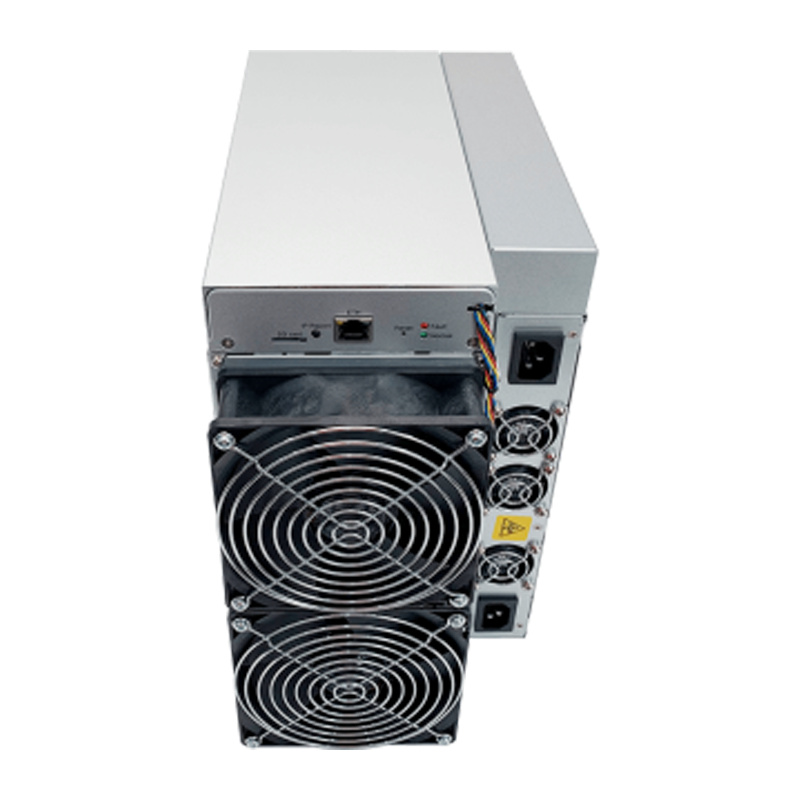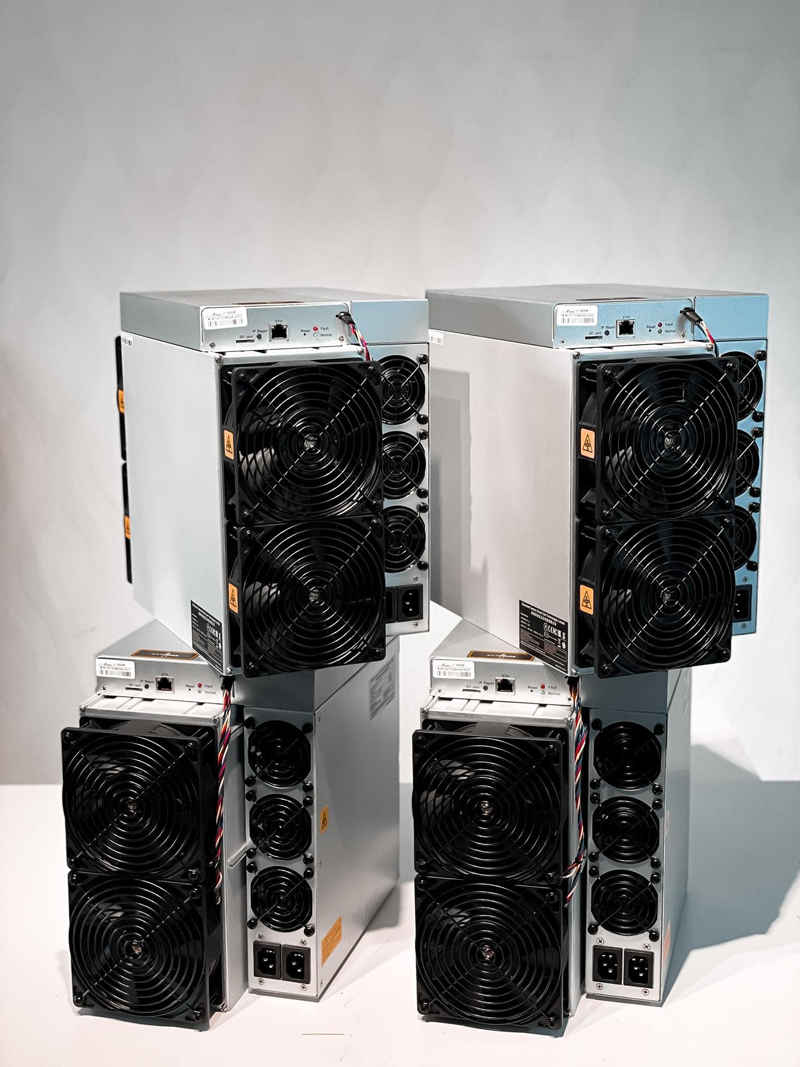Bitcoin was the first cryptocurrency that achieved public awareness. It began as a payment method outside the control of governing bodies or other third parties. Bitcoin Cash is a cryptocurrency created from a Bitcoin blockchain fork, which occurs when users resist change or reprogram a blockchain to operate the way they want it to. Bitcoin cash forked in 2017 after developer and user disagreements about the direction Bitcoin was heading.
In July 2017, mining pools and companies representing roughly 80% to 90% of Bitcoin computing power voted to incorporate a technology known as segregated witness (SegWit). This fix made the amount of data needing verification in each block smaller by removing signature data from the block that needs to be processed in each transaction and attaching it in an extended block. Signature data was estimated to account for up to 65% of data processed in each block, so this was not an insignificant technological shift. S17 Pro Review

In September 2017, research released by cryptocurrency exchange BitMEX showed that SegWit implementation had helped increase the block size amid a steady adoption rate for the technology.
Bitcoin Cash is a different story. Bitcoin Cash was started by Bitcoin miners and developers equally concerned with the future of the cryptocurrency and its ability to scale effectively. However, these individuals had their reservations about the segregated witness feature. They felt that SegWit did not address the fundamental problem of scalability meaningfully, nor did it follow the roadmap initially outlined by Satoshi Nakamoto, the anonymous party who first proposed the blockchain technology behind cryptocurrency.
In August 2017, some miners and developers initiated a hard fork, effectively creating a new blockchain and currency: Bitcoin Cash (BCH). BCH has its own blockchain and specifications, including one crucial distinction from Bitcoin: it has an increased block size of 8 MB to accelerate the verification process. This block size has an adjustable size level, which ensures transaction verification speeds, regardless of the number of miners supporting it. This limit was increased to 32 MB in 2018.
Bitcoin Cash is thus—theoretically—able to process transactions more quickly than the Bitcoin network, meaning that wait times should be shorter and transaction processing fees could be lower. The Bitcoin Cash network is also believed to be able to handle many more transactions per second than the Bitcoin network. However, this claim has yet to be tested, as the blockchain only averages more than 115,000 daily transactions.
The debate about scalability, transaction processing, and blocks has continued beyond the fork that led to Bitcoin Cash. In November 2018, for example, the Bitcoin Cash network experienced its own hard fork, resulting in the creation of yet another derivation of Bitcoin called Bitcoin SV. Bitcoin SV was created in an effort to stay true to the original vision for Bitcoin that Satoshi Nakamoto described in the Bitcoin white paper while making modifications to facilitate scalability and faster transaction speeds.
Bitcoin remains the most popular cryptocurrency in the world as well as the largest by market capitalization, so BCH users may find that liquidity and real-world usability are lower than they are for Bitcoin.
Even with an increased block size implemented to decrease transaction times and improve usability, BCH doesn't experience near the popularity and volume of Bitcoin. BCH block sizes on Nov. 1, 2023, ranged from a few hundred bytes to about 7 MB, while BTC blocks ranged consistently from 1.1 MB to about 1.8 MB.
On Nov. 1, 2023, Bitcoin Cash had a market capitalization of $4.7 billion, ranking it No. 18 among cryptocurrencies by this measure, while Bitcoin was the largest cryptocurrency by far, with its market cap of $673 billion.
Like Bitcoin, the total supply of Bitcoin Cash will never exceed 21 million coins. The rate at which new coins are added to the circulating supply gradually decreases along a defined schedule, with the issuance rate cut in half about every four years. As of Nov. 1, 2023, the circulating supply of Bitcoin Cash was 19,547,438 BCH or about 93% of the total supply. Bitcoin's circulating supply was 19,530,375 BTC or 93% of the total supply.
Bitcoin Cash enables peer-to-peer payments between individuals, like cash, but in digital form. Fees for sending Bitcoin Cash are typically a fraction of a cent, while settlement occurs almost instantly regardless of the physical location of the participants in the transaction. These features make Bitcoin Cash useful for daily transactions as well as microtransactions.
Bitcoin and Bitcoin Cash are two cryptocurrencies that evolved from the original Bitcoin release. Bitcoin Cash forked from Bitcoin in 2017 after the community disagreed on how to fix scalability and speed issues. Bitcoin remains the top cryptocurrency by price and market capitalization, but Bitcoin Cash has a significant user base as well.
The comments, opinions, and analyses expressed on Investopedia are for informational purposes only. Read our warranty and liability disclaimer for more info. As of the date this article was written, the author does not own cryptocurrency.
Bitcoin. "What Is Bitcoin Cash?"
Bitcoin. “80% of Bitcoin Miners Agree on July 2017 Hard-Fork.”
Binance Academy. "A Beginner's Guide to Segregated Witness (SegWit)."
BitMEX. “The SegWit Transaction Capacity Increase — Part 1.”
Bitcoin Cash Node Documentation. "Bitcoin ABC 0.17.0."
Bitcoin. “Bitcoin Cash 8MB Block Clears Over 37,000 Transactions.”
BitInfoCharts. "Bitcoin Cash Transactions Historical Chart."
BSV Blockchain.“BSV Blockchain: About.”
Blockchain.com. "Latest BTC Blocks."
Blockchain.com. "Latest BCH Blocks."
CoinMarketCap. "Today's Cryptocurrency Prices by Market Cap."

Goldshell Mini Doge By clicking “Accept All Cookies”, you agree to the storing of cookies on your device to enhance site navigation, analyze site usage, and assist in our marketing efforts.